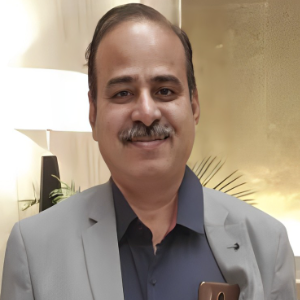Microdermabrasion is a minimally invasive procedure used for exfoliating the outermost layers of skin. The procedure uses fine abrasive crystals to exfoliate the skin and vacuum suction to immediately remove the dead skin cells. Microdermabrasion can be effective for reducing wrinkles, fine lines, age spots, and other skin blemishes caused by aging, sun exposure, or acne. It also helps to decrease scarring and fade stretch marks. Microdermabrasion can even out skin tone, reduce pore size, and even stimulate collagen production for better skin elasticity. The procedure is considered safe and generally painless, with no downtime required. Typically, a series of five to twelve treatments spaced at one to two week intervals will be recommended for best results. The first microdermabrasion treatment begins with preparation of the skin. A cleansing and gentle exfoliation is done to reduce dryness and prepare the skin for treatment. The aesthetician then uses a hand-held microdermabrasion device with fine abrasive crystals that are blowing gently onto the surface of the skin. The device also provides suction to remove excess cells. To reduce redness, a cold air stream or aloe vera gel may be applied after treatment. Depending on the patient’s individual needs, other aftercare recommendations may include a hydrating mask, moisturizer, and sunscreen. Patients typically report little to no discomfort during a microdermabrasion procedure and minimal to no swelling or redness afterwards. The beneficial effects of microdermabrasion will be visible after the first treatment, but best results are usually seen after several treatments.

Ravi M Rathod
KMCRI, India
Dechelette Corinne
La Peau Autrement, France
Irina Sergeeva
Novosibirsk State University, Russian Federation
George Sulamanidze
Plastic Surgeon at Clinic of Plastic and Aesthetic Surgery and Cosmetology TOTALCharm, Georgia
Nino Tsamalaidze
Ltd Karabadini+, Georgia
Lina Petrossian
California University of Science and Medicine, United States
Surajbala Khuraijam
Manipur Health Services, India
Shrutimita Pokhariyal
Symbio, India
Yasser Mohammed Hassanain Elsayed
Egyptian Ministry of Health, Egypt



Title : Paraneoplastic Autoimmune Multiorgan Syndrome or PAMS: Paraneoplastic pemphigus revisited
Sergei A Grando, University of California Irvine, United States
Title : Modern non-invasive methods for in vivo assessment of skin
Georgios N Stamatas, SGS, France
Title : Personalized and precision dermatology through the view of biodesign-inspired translational & data-driven applications: Revolutionary skin treatments for every concern in clinical dermatology integrating skin care experts and consumers
Sergey Suchkov, N.D. Zelinskii Institute for Organic Chemistry of the Russian Academy of Sciences, Russian Federation
Title : The next generation of threads: Lifting, volumization, and biostimulation in one powerful triple action
George Sulamanidze, Plastic Surgeon at Clinic of Plastic and Aesthetic Surgery and Cosmetology TOTALCharm, Georgia
Title : Lymphoproliferative diseases in the practice of a dermatologist
Irina Sergeeva, Novosibirsk State University, Russian Federation
Title : Art, skin, and dermatology: Interdisciplinary perspectives
Dechelette Corinne, La Peau Autrement, France
Title : Comparative efficacy of omalizumab and dupilumab in children with Chronic Spontaneous Urticaria (CSU): A retrospective cohort analysis
Molynna Nguyen, University of Toledo, United States
Title : "Mirror mirror on the skin” — A low-cost community strategy to reduce melanoma disparities in Washington, D.C.
Kayla Sampson, Georgetown University School of Medicine, United States
Title : Vitiligo: Not just an aesthetic disorder
Mateja Starbek Zorko, University Medical centre Ljubljana, Slovenia
Title : Personalized and Precision Medicine as a unique avenue to have the healthcare model renewed to secure the national biosafety: Advanced skincare solutions in individualized cosmetology, reconstructive plastic surgery and the modern beauty
Sergey Suchkov, N.D. Zelinskii Institute for Organic Chemistry of the Russian Academy of Sciences, Russian Federation